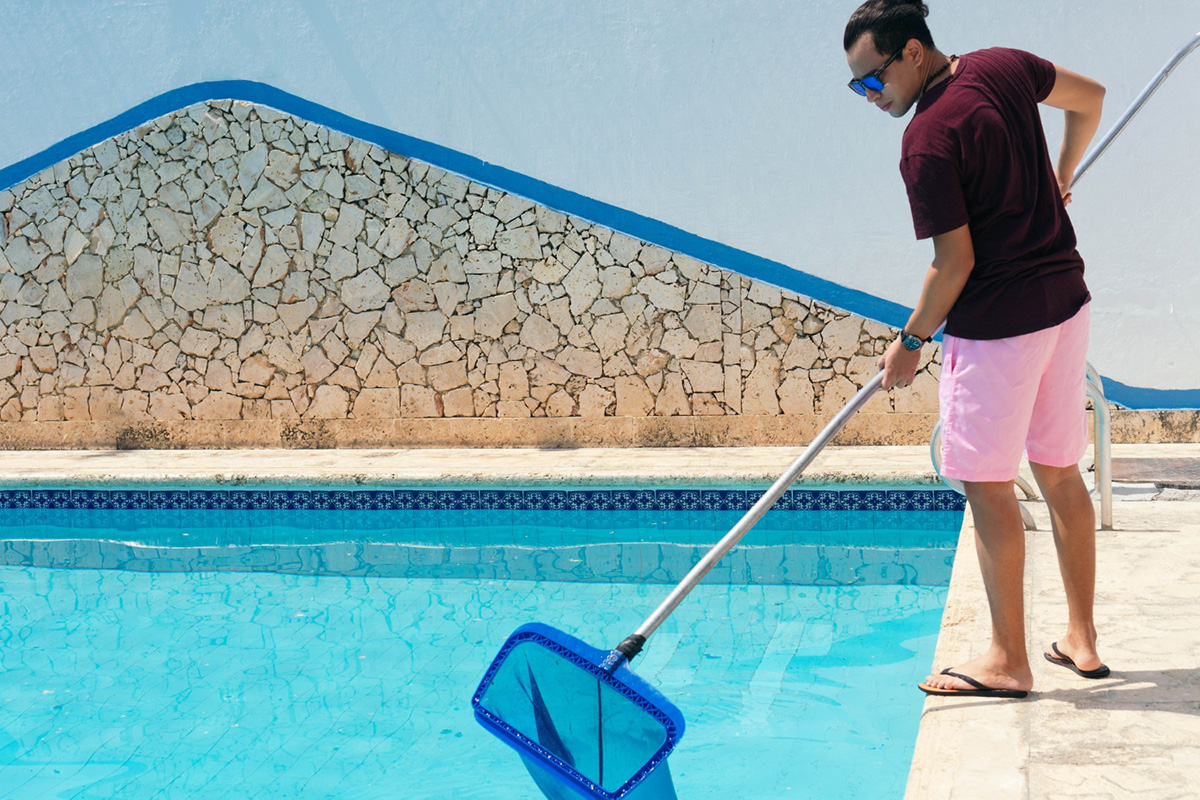
If you have a pool at home, then you know how much fun it brings to family and friends during the hot summer months. One of the downsides of owning a pool, however, is the maintenance that it requires, especially after a storm. While rain is essential for filling up your pool, it’s not so great when it brings dirt, debris, and other pollutants that can change the chemical balance of the water. In this post, we’ll discuss how to clean your pool after a storm, so you can get back to enjoying your pool in no time.
1. Inspect the pool
After a storm, the first step in cleaning your pool is to inspect it. Check for debris such as leaves, twigs, or branches that may have fallen into the pool. If there are any branches or large debris, remove them first using a net.
2. Turn off the electricity
If your pool has any electrical components such as a pump or filtration system, you'll want to turn off the electricity before performing any cleaning or maintenance activities. This can help avoid any accidents, and it can protect your equipment from damages.
3. Check the water chemistry
Storms can easily affect the chemical balance of pool water. That's why you should test the water before jumping into the cleaning process. Use a water testing kit to measure the pH, alkalinity, and chlorine levels. The ideal pH range is 7.2-7.8, while the total alkalinity should range between 80-120 ppm. Finally, make sure that the chlorine level is between 1-3 ppm.
4. Clean the pool
Once the debris has been removed, clean the pool using a vacuum and brush. Be sure to brush the walls, floor, and stairs of the pool, paying particular attention to any areas where dirt or debris may have accumulated. After that, run your pool pump for at least 24 hours to ensure all the remaining debris is removed from the water.
5. Shock and sanitize the pool
After a storm, there's a high chance your pool is contaminated with algae, bacteria, and other pathogens that require treatment. Shocking and sanitizing your pool is a crucial step in keeping it clean and safe for use. You can do this by adding shock treatment chemicals that are usually sold at stores, which will kill all bacteria and algae in the water.
Conclusion
Cleaning your pool after a storm is a crucial part of maintenance, and it’s something that needs to be done quickly to avoid any damages and contaminants. By following the steps outlined in this post, you should be able to clean your pool quickly and efficiently. If you need help with pool maintenance or are looking for pool renovation in Orlando, FL, contact All Phase Pool Remodeling today for a free estimate. We can help with any pool renovation needs you may have, so that you can continue to enjoy your pool for years to come.